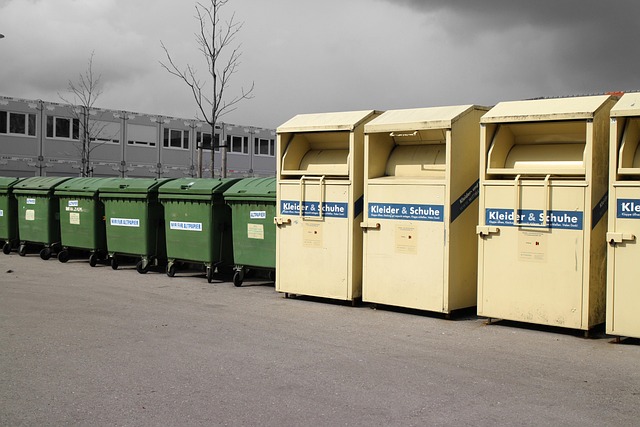Boston and New York City enforce strict IT asset disposal regulations to manage e-waste responsibly. Massachusetts E-Waste Recycling Law in Boston mandates compliance, while NYC bans regular trash disposal of electronics, promoting drop-off locations. Reputable companies offer secure recycling with data sanitization through techniques like shredding and drive overwriting, ensuring environmental sustainability and data security for IT asset retirement.
“Securely disposing of old IT assets is a critical yet often overlooked aspect of business operations. This guide explores best practices for responsible IT asset disposal in Boston and New York, two major tech hubs. We’ll delve into navigating stringent regulations, ensuring data security during retirement, and employing secure recycling methods specific to the region. By adhering to these strategies, businesses can mitigate risks, protect sensitive information, and contribute to sustainable electronic waste management.”
- Understanding IT Asset Disposal Regulations in Boston and NY
- Secure Methods for Recycling Electronic Waste in the Region
- Strategies to Ensure Data Security During Asset Retirement
Understanding IT Asset Disposal Regulations in Boston and NY

Understanding IT Asset Disposal Regulations is crucial for businesses operating in Boston and New York City, as these urban centers have stringent environmental laws regarding e-waste management. Both cities have implemented strict guidelines to ensure responsible IT asset disposal, aiming to reduce the growing problem of electronic waste or e-waste.
In Boston, IT equipment decommissioning must adhere to the Massachusetts E-Waste Recycling Law, which mandates proper handling and recycling of electronic devices. Similarly, New York City has its own set of regulations, including a ban on disposing of electronics in regular trash, promoting the use of numerous e-waste drop-off locations throughout the city. Businesses should familiarize themselves with these guidelines to avoid legal repercussions and ensure their IT asset disposal practices contribute to a greener environment. Additionally, proper documentation and certification of responsible recycling are essential for record-keeping and public accountability.
Secure Methods for Recycling Electronic Waste in the Region

Boston and the surrounding New York region have stringent environmental regulations regarding electronic waste (e-waste) management, ensuring a secure and eco-friendly approach to IT asset disposal. The process involves specialized recycling centers that employ advanced techniques to handle old computers, servers, and other electronics. These methods not only safeguard sensitive data protection during disposal but also promote the responsible recycling of valuable materials.
One innovative method is the utilization of shredding technology to reduce electronic devices to small fragments, ensuring data security. Additionally, many reputable IT asset disposal companies in the area offer secure chain-of-custody services, providing transparency and peace of mind for businesses. The recycled electronics are then processed to extract valuable components, which can be refinered and sold to manufacturers, reducing the demand for new raw materials. Reputable suppliers of recycled electronics ensure that these products meet high-quality standards, providing an environmentally conscious alternative in the IT industry.
Strategies to Ensure Data Security During Asset Retirement

As organizations in Boston and New York navigate the process of retiring old IT assets, ensuring data security is paramount. Before recycling or discarding electronic devices, it’s crucial to implement robust strategies to protect sensitive information. One effective approach is to engage specialized services offering mass electronic device destruction, guaranteeing that data is permanently erased from all hardware components. This method ensures no trace of confidential data remains, mitigating the risk of unauthorized access or identity theft.
Adhering to IT equipment decommissioning guidelines and establishing comprehensive electronic device retirement programs can significantly enhance security. These programs should encompass data sanitization procedures, such as overwriting hard drives or degaussing magnetic media, to ensure no residual data is retrievable. By following these practices, businesses in the Boston and New York areas can confidently retire their IT assets while maintaining the integrity of sensitive information.
When it comes to securely disposing of old IT assets in Boston or New York, understanding local regulations and employing robust data security measures are paramount. By adhering to the outlined strategies, businesses can ensure compliance with environmental and data protection standards while contributing to sustainable electronic waste recycling practices in the region. Implementing these steps is not just responsible but also a smart step towards mitigating potential risks associated with outdated IT equipment.














